Own Your Strength, The World Needs It
At this unusual moment in history, many people are social distancing at home. This bears similarities to Solo on an Outward Bound course (but hopefully with fewer bugs). So what is Solo?
After days of crossing expanses of terrain or scaling unnerving heights, Outward Bound courses come to a period of pause. This is called Solo. While almost all aspects of life on an expedition require a group setting, Solo is a time of separation which serves as a chance for each crew member to reflect on their own capabilities and strengths. After Solo, the crew is reunited and they navigate challenges everyone is ready to confront because of rest and reflection.
Solo teaches us how we can draw upon our own strengths to impact our world.
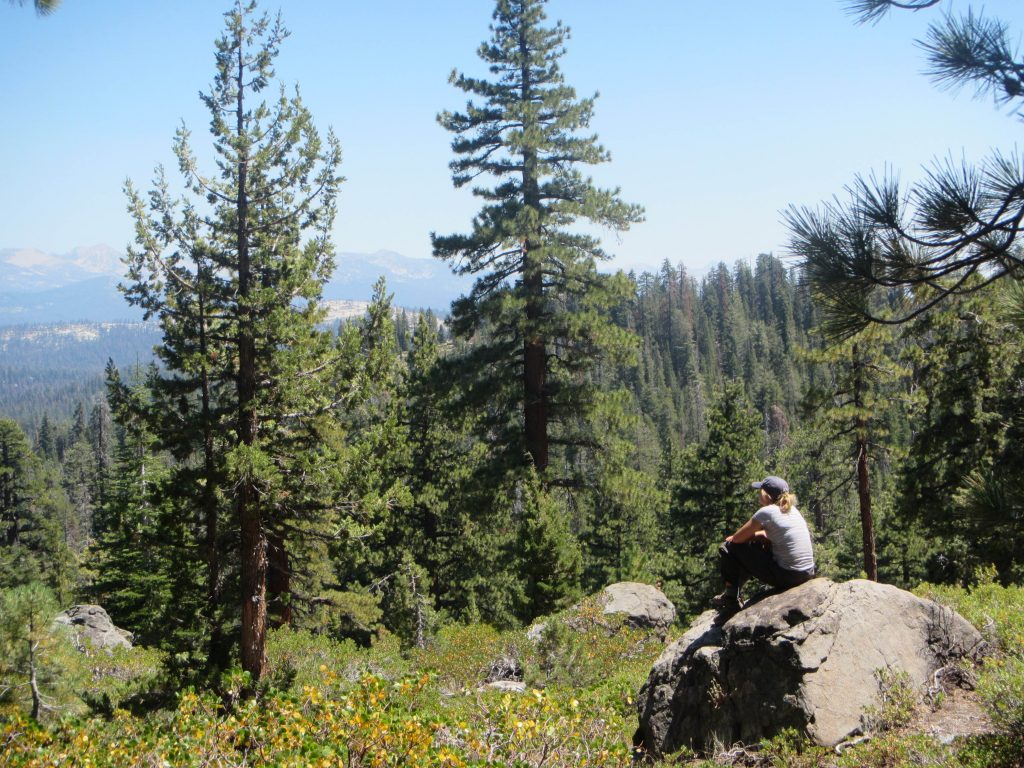
Basic Needs Are Met
Each person’s capabilities—while separated—depend on the whole to make sure that everyone’s basic needs are met. Before students embark on a time of separation and solitude, the crew ensures that equipment is divided up equally to make sure every person has a shelter, enough food and the supplies they need to be comfortable. Solo is a chance to conserve resources and to use only what is needed.
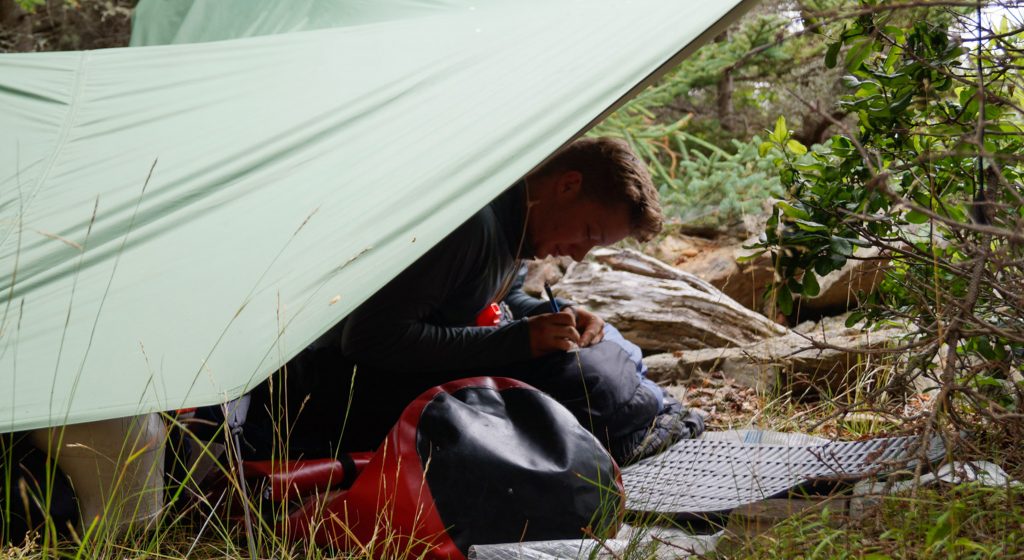
Photo by Amber Bolduc
This strength in community, while physically separated, is something we’ve recently experienced through mutual aid groups, food bank service, housing shelters and more. It’s provided us a chance for reflection and action as we work to ensure everyone’s basic needs are met.
Care for the Home Environment
It’s important to care for the space that cares for you, and on expeditions we practice craftsmanship—or as we like to say, craft-person-ship. Crew members come to know their Solo spot really well. This means setting up a Solo tarp with excellence, taking care of the food supply and practicing Leave No Trace outdoor ethics. Some students spend time making nature art or clearing out debris, and they find out that caring for their immediate environment makes it more possible to care for themselves. For many, this time of social distancing has provided a chance to care for home environments with craft-person-ship in a similar way.
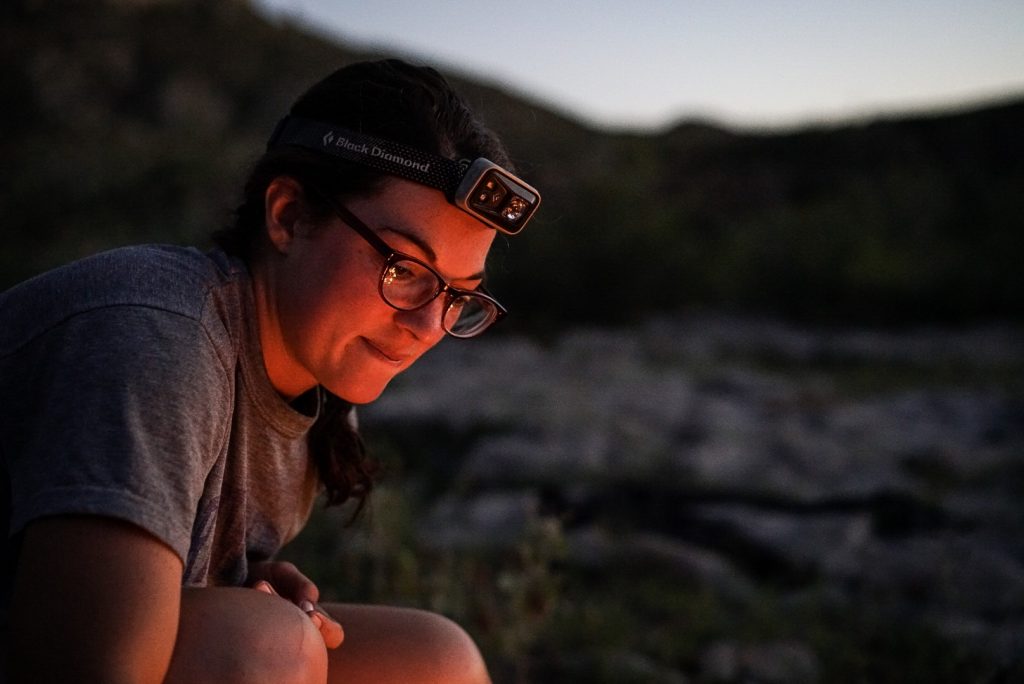
Time for Reflection
Learning comes from experience plus reflection. We can recognize and own what our capabilities and strengths are in challenging situations when we take time to reflect on them. Often on Solo, crew members notice things they never noticed before—the way the light changes throughout the day or the songs the birds sing. One of the first things students notice is how they are interconnected, and ways in which their courage, spirit or stamina is lifted up by other people who they are now separated from. When crew members miss family or friends during Solo, Instructors often share the idea of writing a letter to that person expressing gratitude for the ways in which they give support and strength.
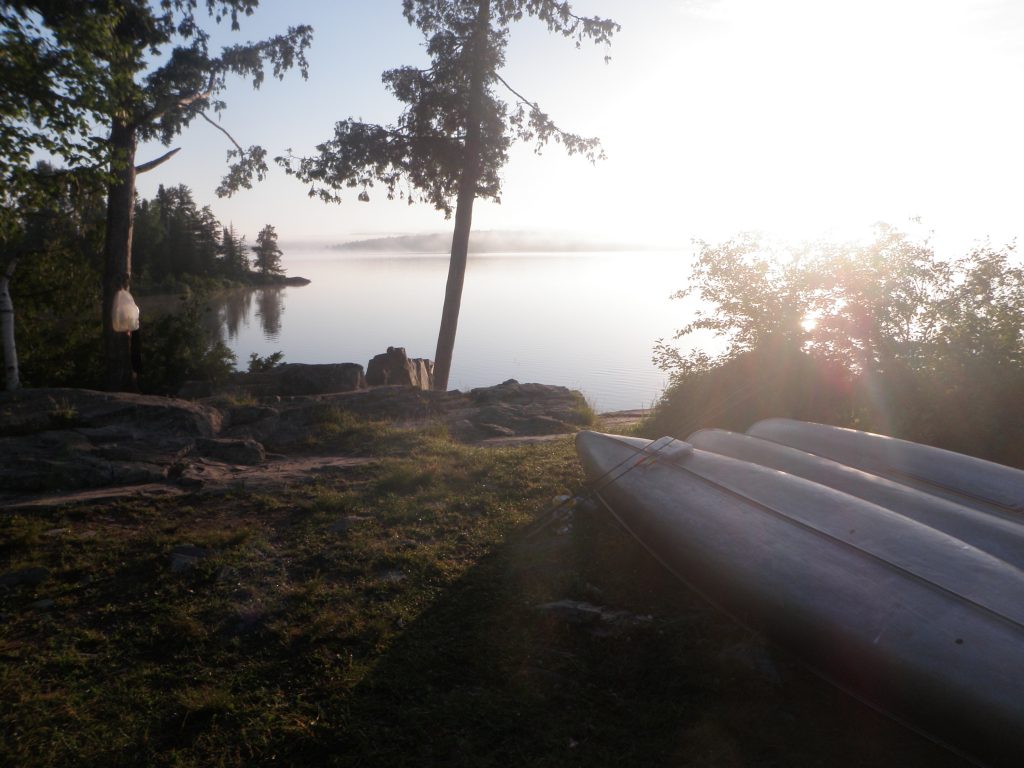
Photo taken during Solo by Maddie Rock.
Owning Our Capabilities
Solo requires each crew member to practice self-reliance, which invariably leads everyone to recognize resources within themselves they hadn’t recognized before. A classic Solo activity is writing a letter to yourself that will be opened in six months. Good prompts include:
What’s happening right now?
What are you proud of?
What do you want to remember about what you are capable of?
What advice would you like to give to your six-months-older self?
This kind of reflection gives students a chance to validate being amidst challenges, and to recognize the learning, growth and strength that’s already emerging. Another journaling prompt that Instructors suggest allows for crew members to tap into their image of their best self by asking: What’s my vision of my biggest, wisest and most admirable self? A time of pause and reflection allows us to claim strength through recognizing our own capabilities.
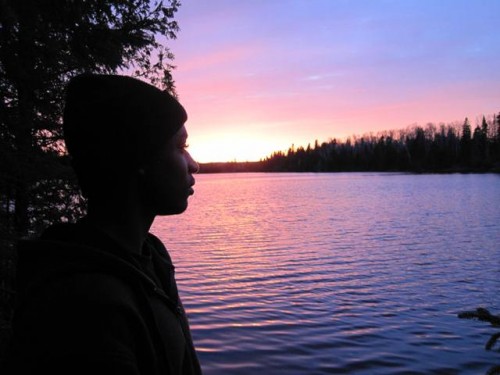
A student enjoys reflection time during his Solo on a course.
Students often leave watches behind on Solo, which allows them to be more acutely aware of the present moment. As we move forward in our current historical moment, we can take these pointers from Solo to reflect on our strengths that have or still have the potential to emerge during this time.
About the Author
Nora Spicer has instructed backpacking and canoeing courses at the Hurricane Island Outward Bound School for five years. She has an MA in Environmental History from Harvard University and aims to bridge wilderness living and academic study through outdoor education. She is currently developing a curriculum for an expedition-based semester program traversing US-Mexico borders by human-powered travel, and is traveling for research on Borderlands education.
The post Own Your Strength, The World Needs It appeared first on Outward Bound.